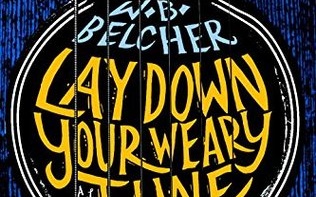The popular appeal of the new film “Jack and Jill vs. the World” rests primarily on its once-famous heartthrob, Freddie Prinze, Jr., whose 90s career is on the verge of being forgotten by the current teeny-bopper audience. The “She’s All That” star emerges from the depths of post-teen stardom, slightly older and chubbier, to reclaim his role as pretty boy. Prinze’s mediocre performance is a perfect match to the film’s corny plot, which isn’t terrible but nonetheless fails to rise above the chick-flick genre.
Prinze plays Jack, a heartless and materialistic advertising executive with a soul in serious need of rescue. Enter: Jill, played by still up-and-coming actress Taryn Manning, a beautiful and charismatic young woman with a carefree attitude. Jack is struck by her positive approach to life and the two become roommates (and a pseudo-couple); but their differing outlooks continuously clash.
What Jack does not know is that Jill’s liveliness spawns from her lack of time—she has been diagnosed with cystic fibrosis. As Jack and Jill take on the world in this “Sweet November” look-alike, they create their own manifesto, combining both Jill’s optimism and Jack’s pessimism. However, anger arises when Jill violates rule number one—be honest.
While this predictable film may have a few cringe-worthy moments, director Vanessa Parise ’93 adds stylistic touches with her crafty camera work. Split-screen frames and smooth transitions are evidence of Parise’s creativity. Nevertheless, no amount of artistic flair can rescue the film from a handful of unnecessary and downright nonsensical scenes—such as a slap fight between Jack and his best friend, a moment that’s neither humorous nor important to the plot.
Though a few superfluous lines are expected in any film, the already short 89-minute “Jack and Jill vs. the World” digresses too far with a tangential storyline involving Jack’s father. Rather than use Jack’s father as a narrative ploy to illuminate Jill’s healing effect on Jack’s life, Parise fails to utilize the character, creating an unnecessary tangent that both confuses and disturbs the flow of the film.
Despite these pointless scenes, in which the actors find it understandably difficult to be convincing, the performances overall are satisfactory. Though I don’t predict any Oscars, none of the actors distract from the film. Parise, who also co-wrote the screenplay, decently fulfills her role as Jill’s best friend Lucy. Co-writer Peter Stebbings also does an adequate job playing the part of Jack’s colleague and friend, George.
Both leads, Prinze and Manning, are experienced enough actors to deliver believable performances, though Manning’s dynamic character somewhat steals the show. As a victim of cystic fibrosis with bright blonde hair who manages to radiate happiness in spite of her condition, Jill is back-and-forth between jovial and sad. Manning’s ability to balance both of these emotions—as well as embody their effects in one performance—is noteworthy, while Prinze’s role requires little more effort than putting on a frown and a furrowed brow. His character, like his acting, is a bit of a bore.
Read more in Arts
No Lady Lazarus: The End of ‘Jezebel James’Recommended Articles
-
Sullivans' Principles Debated in CouncilSullivan Chamber in City Hall earned its name last night. The Cambridge City Council, including Councillors David E. and Walter
-
Man Guilty Of Breaking And EnteringA Somerville man who was discovered by a Harvard student in the student's Quincy House room in December was convicted
-
‘Key’ Fails to Lock AudienceKate Hudson creeps towards the shaking door in classic horror-movie style and slowly reaches toward it. A sound startles her,
-
Alum Makes Feature FilmAlthough Vanessa Parise ’92 concentrated in biology as an undergraduate in Kirkland House, she has spent most of her post-college
-
 ‘Lay Down Your Weary Tune’ a Meditative Study of Life
‘Lay Down Your Weary Tune’ a Meditative Study of Life













